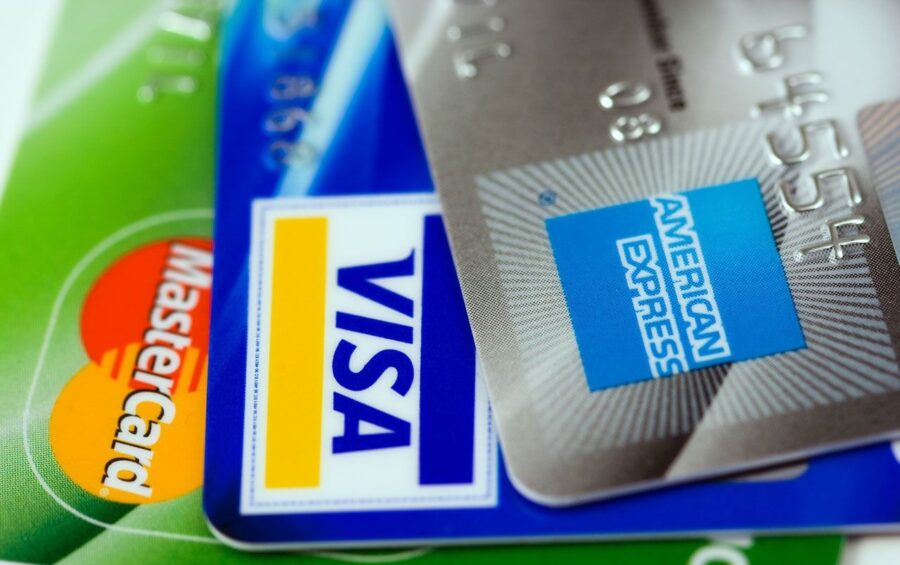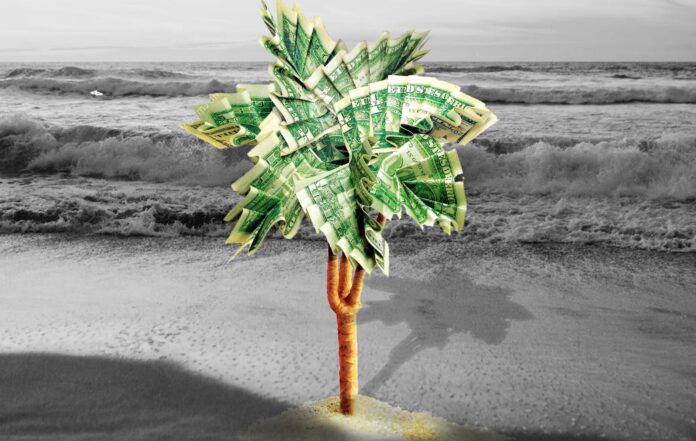By Mandy Miles and Alex Rickert
We can tap a credit card or our cell phones against an electronic machine. We can slide a plastic card into the black folder restaurant servers present, then sign the slip of paper they bring back to us. Or, we can open that other section of our wallet, extract the appropriate bills and pay for something in cash.
Do people still do that? Pay in cash? Turns out, yes, plenty of people still use cash, and plenty of service industry workers prefer it, but the rise of digital payment methods has taken a bite out of cash transactions. “Six in 10 people now say they make ‘only a few’ or no purchases with cash today, nearly double the 32% saying they did so five years ago,” a 2022 Gallup poll revealed.
The increasing use of plastic money — and companies’ promise of “points” for purchases and airline tickets, is taking a slice out of some servers’ tips, depending on a restaurant’s policies.
Some servers, accustomed to having a pocketful of cash at the end of a shift, are now having to wait until the next paycheck to receive tips left by customers on credit cards.
“With so many people using cards these days, some restaurant owners are now putting servers’ credit card tips on their paycheck instead of cashing them out every night,” said Bobby Mongelli, owner of Hogfish Bar & Grill and Roostica Italian restaurant on Stock Island. “Some places don’t keep enough cash on hand to cash out their servers each night.
“I still tip my folks out in cash each night, and have had to make sure we always have enough cash on hand for that,” Mongelli said.
Daily cash from tips has always been one of the draws of the service industry, where adequately tipped workers earn a paltry hourly wage that has long made their weekly or bi-weekly paychecks inconsequential. Those checks have a greater significance when they include at least a week’s worth of credit card tips. It’s delayed gratification for waiters and waitresses unaccustomed to waiting for a paycheck.
Lynn Bell, owner of the Square Grouper restaurants in the Upper and Lower Keys and My New Joint on Cudjoe Key, said she’ll always ensure that her servers and bartenders are tipped out in cash every night.
“That’s one of the draws of the job, and I’ll never change that, unless the industry forces me to,” she said, adding that she prefers to pay in cash whenever possible, knowing restaurant owners and employees prefer it.
In addition, the escalating fees charged by credit card companies and passed on to consumers have prompted some businesses to charge more for credit card purchases.
“Not just the credit card companies, but every vendor and purveyor now adds on the additional fees to anyone who pays with a credit card,” Bell said, adding that she doesn’t withhold the 2% or 3% credit card processing fee from her servers’ tips, even though it is legal to do so in most states.
At her businesses, servers walk out each night with 100% of their credit card and cash tips (minus any agreed-upon tip outs to hosts, busboys or service bartenders).

The same is true in the Middle Keys, where Omar Maldonado is co-owner of the S.S. Wreck and Galley Grill on Grassy Key as well as Marathon’s Coast to Coast Pizza Co. Though he said credit cards account for around 90% of his sales, that hasn’t affected his ability to keep servers – specifically because he prioritizes making sure his smaller staff walks out with cash in their pockets on a nightly basis.
“Maybe in some of the bigger restaurants, keeping that cash on hand every night might be a challenge, but we’re really able to accommodate that,” he said. “There have been a couple times, I’m not going to lie, that we’ve been short, but all we do is say ‘Hey, look, we’re short tonight, but we’ll have the money for you when you come in tomorrow.’”
“These people, that’s how they live,” Maldonado added. “They’re used to walking out with their money. … If you start sitting on the money, then they become suspicious. But you shouldn’t, because that’s their money. That’s kind of how the industry has always done it.”
Maldonado said he eventually could add a credit card surcharge. But he said he’ll “never” take a portion of the credit card fee out of his servers’ tips.
“I just don’t think that’s right,” he said. “I would never even think twice about that.
“When you really get into it and learn about it, (the customers) are saying ‘Yeah, I want to use this card so I can build my points,’ while I’m paying the fees for that. I just think, why should I have to absorb the fees when I do stuff like the veterans discount, the locals discount, and it all adds up at the end of the year.
“Using round numbers, if you have a million dollars in credit card transactions and on average you’re paying about 2.7% (in fees), that’s $27,000 you’re paying out of your pocket as a restaurant owner.
“The Keys might still be getting a feel for it, but if you get up into the mainland or places like New York and other parts of the country, it’s more prevalent. It’s like, sure, use your credit card, but you’ve got to pay a fee. Once you get a couple of big guys on, I think other people will follow and it will become the norm.”
Amber Klein is the manager of the Island Fish Co. in Marathon, a bustling waterfront restaurant serving food from breakfast to late dinners. Even as one of the larger venues in Marathon, Klein said the Island prioritizes the importance of nightly payments for its wait staff.
“We have a deposit and then petty cash. If we don’t have enough cash in our deposit, we take it out of petty cash. We give (the tips) to the servers every day and night,” she said. “The cash comes from us or from their tables that paid in cash. They’re never going home without money.”
























